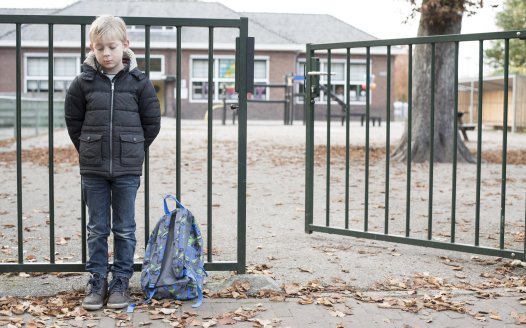The evidence against faith schools is overwhelming
Posted: Tue, 23rd Feb 2021 by Steven Kettell and Rebecca Vernon
A comprehensive new bank of academic research shows how shaky the main arguments for faith schools are, say its authors Steven Kettell and Rebecca Vernon.
Since state-funded faith schools were radically expanded and diversified by the New Labour governments almost two decades ago, controversy around their place in the UK's education system has never been far away.
Supporters claim faith schools offer a variety of benefits, including greater choice for parents, superior educational outcomes, and the promotion of moral values. Critics strongly dispute such claims and maintain that state-funded faith schooling is incongruous in a country where religion is in significant decline.
Figures from the British Social Attitudes survey show that more than 50% of adults in Britain now describe themselves as having 'no religion', yet around a third of all state-funded schools in England are classified as having a faith (overwhelmingly Christian) designation. On an average school day over a million children will be found attending Church of England schools, a figure that dwarfs the average church attendance (currently standing at just 690,000 for any given Sunday).
While much has been written on this topic, research findings are often published in a variety of locations (often difficult to access), making it hard to gain a comprehensive view of the debate. We hope to address that. The Faith Schools Research Bank draws together available research which highlights the negative effects of faith schools, making it easy to access from a single location.
The research bank is divided into five sections, each outlining a key area in the debate. Research contained in the first section, 'social cohesion', challenges claims that faith schools are socially beneficial, as the evidence shows that segregating pupils on the basis of their parents' faith fosters exclusivity, insularity, and social division.
In the second section, 'performance and selection', we address the question of educational outcomes. Research here shows that faith schools do not produce better grades than non-faith schools once factors other than the alleged faith 'ethos' of the school (such as pupil intakes and demographics) are accounted for.
The third section deals with issues of 'choice and admissions'. This reveals substantial flaws in the argument that faith schools are good for parental choice. It looks at the way faith schools often compel parents to send their children to schools with a religious outlook which they may not share. It also highlights their use of unfair admissions procedures to limit entry for children whose parents do not share their religious faith.
Research in the fourth section, 'values and morality', examines the claim that faith schools are able to promote enduring moral values. Many studies here show that faith schools are primarily motivated to advance the interests of particular religious institutions, a goal that undermines the intellectual freedom and autonomy of their pupils, and that the promotion of religious values often runs contrary to ideals of equality in areas such as sexual orientation and reproductive rights.
The final section, on 'opinion polls', sets out a wide range of polling data questioning the popularity of faith schools in Britain. The evidence here suggests that there is a strong and consistent opposition to the idea of state-funded faith schools, from religious and non-religious citizens alike.
Entries in the research bank have been collated from three key sources of information: (1) peer-reviewed academic articles, based on an extensive survey of more than one hundred journals published during the last decade and a half; (2) reports from third-party organisations, such as think-tanks, charities, and campaign groups; and (3) findings from opinion poll surveys conducted on the issue of faith schools since their introduction.
Each entry in the research bank provides an easily digestible snapshot of the key evidence contained in the study, providing an at-a-glance overview of the central argument and how it relates to the core themes of the debate. All documents are fully referenced, and wherever possible we have provided direct links to the sources that we have used. Where we have been unable to do this (for instance, in the case of academic articles that are viewable by subscription), we have linked to alternative sources (such as the available author copies) as frequently as possible.
It is our intention to expand and update this research bank over the coming months and years, allowing us to include more research findings as they become available. Our hope is that it will provide an invaluable and comprehensive resource for anyone interested in the ongoing debate around faith schools in Britain.
Launch event: The NSS will be holding an online Q&A with Steven Kettell on Thursday 8 April. Click here to register.
Image: LightField Studios/Shutterstock.com

No more faith schools
We need inclusive schools free from religious discrimination, privilege or control. Join our campaign.








